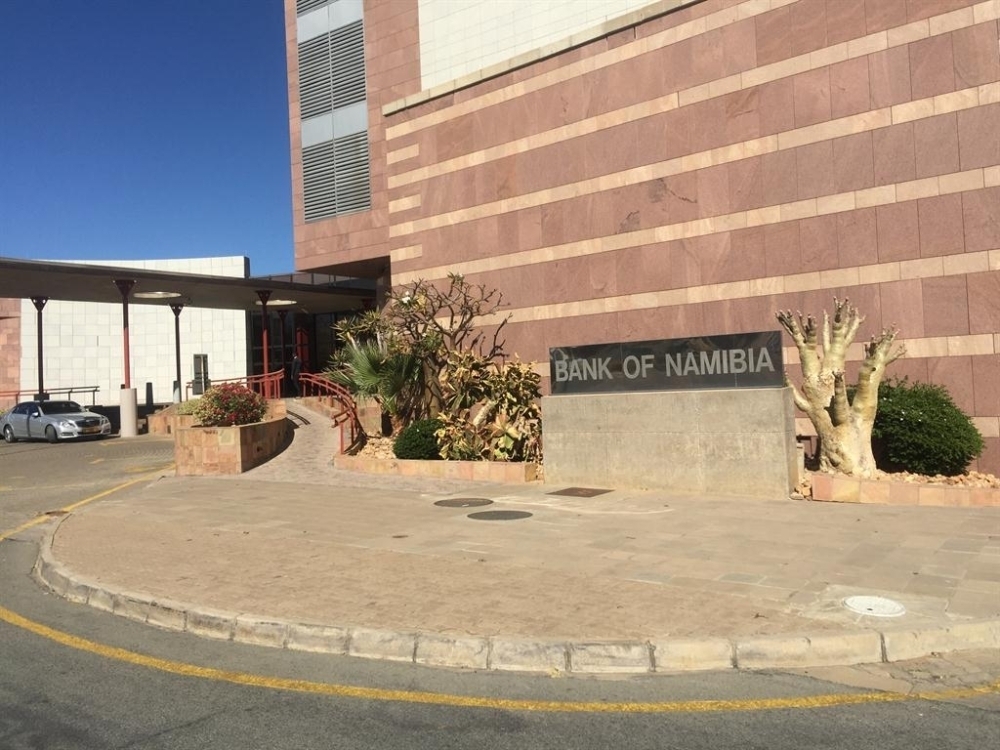Prudent conversations on virtual assets, trade needed - BoN
The Bank of Namibia (BoN) has established a technical committee with the Namibia Financial Institutions Supervisory Authority (Namfisa) to develop a prudential licencing and regulatory framework for virtual assets (VAs) and virtual asset service providers (VASPs).
The bank's governor, Johannes !Gawaxab, announced this during a central bank digital currencies (CBDC) and crypto assets thought leadership event in Windhoek.
He said Namibia has agreed to review legislative frameworks as well as “draft a framework for VAs and VASPs".
"The committee is charged with developing a prudential licencing and regulatory framework.
“Until such a time that it is finalised and operationalised, the public remains cautioned to be careful when investing in VAs as there is no protection should funds so invested be forfeited," he said.
Your problem
The central bank further noted that discussions between service providers and its newly established Innovation Hub were fruitful and it is now prepared to implement VAs and VASPs in phases under its fintech innovations regulatory framework.
Although bitcoin and other digital currencies remain without legal tender status, !Gawaxab said the "acceptance of VAs for the payment of goods and services will be at the discretion of any merchant and buyer willing to participate in such an exchange or trade".
"The precise plan is that the bank will, in the short-term, register VASPs and, in the long-term, amend applicable laws and regulations diligently in consultation with other relevant authorities such as Namfisa," he said.
Worrisome
BoN remains cautious regarding initial coin offerings’ (ICOs) possibility for fraud.
"The bank does not advocate nor support the general public's engagement in ICOs related to VAs," !Gawaxab maintained.
This after the central bank said in 2018 that while there's growing public interest in cryptocurrency, it “does not constitute legal tender in Namibia".
It further said members of the public who conclude cryptocurrency transactions will have no recourse with the bank in the event of financial loss or misfortune.
New laws
According to an article released by FinBold earlier this month, the bank seems to slowly be warming up to the idea of digital currencies.
Meanwhile, !Gawaxab said the future of money is at an inflection point.
"The battle between regulated and unregulated money [is] on the one hand, and sovereign versus non-sovereign money on the other."
CBDCs
The BoN governor further announced that the bank will release a CBDCs consultation document this month.
It will provide something privately issued or developed digital currencies cannot, he added.
"The ultimate goal of contemplating the implementation of a CBDC is to ensure that individuals operating in an increasingly digitalised economy continue to have access to the safest form of money - central bank money.”
However, the bank said it will continue to exercise caution to ensure that technology is not simply "adopted because it is available", but that each digital transformation initiative is directly linked to the bank's mandate.
The date for the document's release has yet to be announced.
The bank's governor, Johannes !Gawaxab, announced this during a central bank digital currencies (CBDC) and crypto assets thought leadership event in Windhoek.
He said Namibia has agreed to review legislative frameworks as well as “draft a framework for VAs and VASPs".
"The committee is charged with developing a prudential licencing and regulatory framework.
“Until such a time that it is finalised and operationalised, the public remains cautioned to be careful when investing in VAs as there is no protection should funds so invested be forfeited," he said.
Your problem
The central bank further noted that discussions between service providers and its newly established Innovation Hub were fruitful and it is now prepared to implement VAs and VASPs in phases under its fintech innovations regulatory framework.
Although bitcoin and other digital currencies remain without legal tender status, !Gawaxab said the "acceptance of VAs for the payment of goods and services will be at the discretion of any merchant and buyer willing to participate in such an exchange or trade".
"The precise plan is that the bank will, in the short-term, register VASPs and, in the long-term, amend applicable laws and regulations diligently in consultation with other relevant authorities such as Namfisa," he said.
Worrisome
BoN remains cautious regarding initial coin offerings’ (ICOs) possibility for fraud.
"The bank does not advocate nor support the general public's engagement in ICOs related to VAs," !Gawaxab maintained.
This after the central bank said in 2018 that while there's growing public interest in cryptocurrency, it “does not constitute legal tender in Namibia".
It further said members of the public who conclude cryptocurrency transactions will have no recourse with the bank in the event of financial loss or misfortune.
New laws
According to an article released by FinBold earlier this month, the bank seems to slowly be warming up to the idea of digital currencies.
Meanwhile, !Gawaxab said the future of money is at an inflection point.
"The battle between regulated and unregulated money [is] on the one hand, and sovereign versus non-sovereign money on the other."
CBDCs
The BoN governor further announced that the bank will release a CBDCs consultation document this month.
It will provide something privately issued or developed digital currencies cannot, he added.
"The ultimate goal of contemplating the implementation of a CBDC is to ensure that individuals operating in an increasingly digitalised economy continue to have access to the safest form of money - central bank money.”
However, the bank said it will continue to exercise caution to ensure that technology is not simply "adopted because it is available", but that each digital transformation initiative is directly linked to the bank's mandate.
The date for the document's release has yet to be announced.





Comments
Namibian Sun
No comments have been left on this article